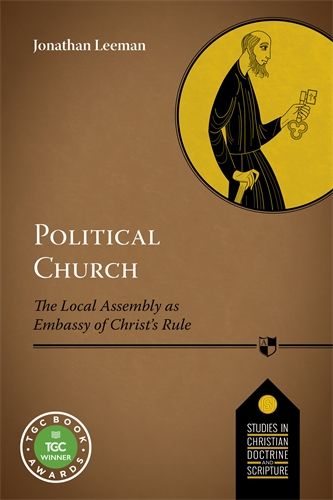
The church is political.
Theologians have been debating this claim for years. Liberationists, Anabaptists, Augustinians, neo-Calvinists, Radical Orthodox and others continue to discuss the matter. What do we mean by politics and the political? What are the limits of the church’s political reach? What is the nature of the church as an institution? How do we establish these claims theologically?
Jonathan Leeman sets out to address these questions in this significant work. Drawing on covenantal theology and the ‘new institutionalism’ in political science, Leeman critiques political liberalism and explores how the biblical canon informs an account of the local church as an embassy of Christ’s kingdom. Political Church heralds a new era in political theology.
Theologians have been debating this claim for years. Liberationists, Anabaptists, Augustinians, neo-Calvinists, Radical Orthodox and others continue to discuss the matter. What do we mean by politics and the political? What are the limits of the church’s political reach? What is the nature of the church as an institution? How do we establish these claims theologically?
Jonathan Leeman sets out to address these questions in this significant work. Drawing on covenantal theology and the ‘new institutionalism’ in political science, Leeman critiques political liberalism and explores how the biblical canon informs an account of the local church as an embassy of Christ’s kingdom. Political Church heralds a new era in political theology.



